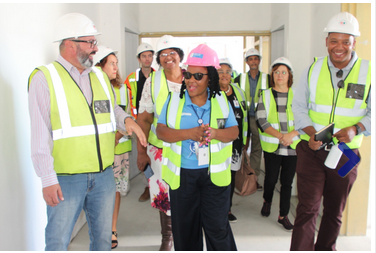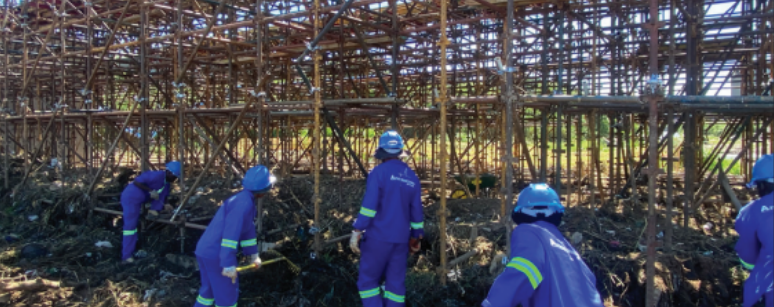JRA breaks ground with alternative asphalt material

10-12-2021
Read : 637 times
Johannesburg Development Agency
Source
The Johannesburg Roads Agency (JRA) is pioneering civil engineering techniques geared at making the roads construction sector environmentally sustainable and eco-friendly.
Using reclaimed asphalt products, the JRA is exploring the potential to lead and compete with peer cities across the globe in the production of alternative paving material for both new roads and the maintenance of existing ones.
According to the JRA’s Operations Manager for Strategic Assets, Langeriwa Mthombeni, the use of reclaimed asphalt products creates an opportunity for innovation and research in a public entity, which directly benefits the organisation and the community at large.
“The JRA benefits from producing cost-effective and eco-friendly materials by creating a production cycle that uses reclaimed asphalt from its road infrastructure. Another notable benefit is that the public’s money is used effectively, with existing pavement reclaimed for further use and more materials made available to be allocated for various other applications, such as filling of embankments and new road projects,” Mthombeni explains.
The JRA is a municipal entity responsible for the design, maintenance, and repair of Joburg’s road network and stormwater infrastructure, including bridges, culverts, traffic lights and signage.
Mthombeni says reclaimed asphalt product is the process of milling out used asphalt from an old pavement and reprocessing it by separating its constituent materials. The JRA recovers constituents of asphalt products, also known as bitumen, to reproduce virgin asphalt material to either resurface a road or pavement and to patch potholes.
The process requires the repurposing of old surface pavement materials as bound matter, which gets unbounded into individual particles that are further evaluated for suitability and appropriateness in asphalt mix designs.
“All constituent particles are characterised before they are combined with virgin materials to manufacture new asphalt,” he elaborates.
He notes that reclaimed asphalt material is repurposed by a crusher machine plant through gradation and separation of binders from the aggregates. Reclaimed asphalt materials are also assessed for the optimum portion of asphalt that can be added without compromising the performance and quality of the final product.
He says the consistency of repurposing reclaimed asphalt materials can be a challenge, which requires stringent laboratory testing and analysis due to the infiltration of dust pollution. However, its advantages outweigh the challenges.
“The benefits of reclaimed asphalt products include an eco-friendly or green focus due to the less energy used during production. It is also more cost-effective owing to decreased usage of bitumen, which is the most expensive constituent material in asphalt production,” he explains.
Reclaimed asphalt products can also be used on pavements, such as the base layer after pulverisation. Additional advantages are that it can be used in the production of cold mix, which is usually deployed to fill broken materials on embankments. It also provides a terrific opportunity for innovation.
“The civil engineering sector is moving in the direction of developing sustainable and eco-friendly construction materials, and we want to lead that process on the continent. Cold mix, warm mix, and hot mix asphalt are key in the development of new products with reclaimed asphalt product and the use of waste products such as plastics, fly ash, and rubber,” Mthombeni elaborates.
At the current rate of development in Joburg, he hopes the JRA will register its engineering professionals with the Engineering Council of South Africa to enhance the application of quality civil engineering practices.
“I foresee the asphalt plant producing a variety of asphalt products supported by the South African National Accreditation System (SANAS) and applied on all our roads. Through research and development, the JRA will be conducting various rehabilitation interventions using the latest technology,” notes Mthombeni.
Recent News
Here are recent news articles from the Building and Construction Industry.
Have you signed up for your free copy yet?









